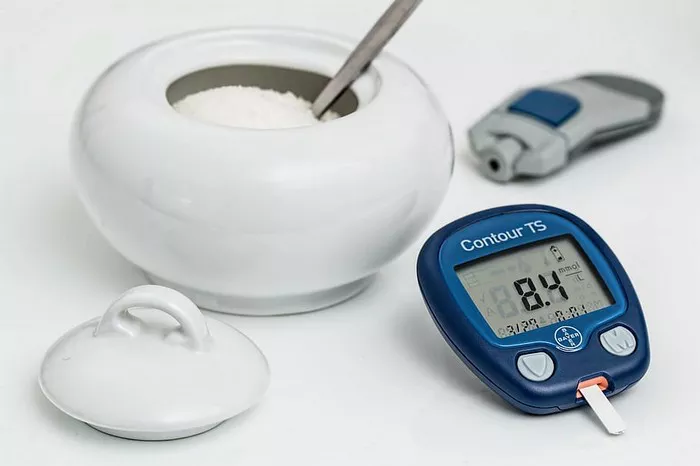Insulin resistance, a condition where the body’s cells become less responsive to insulin, is a key precursor to type 2 diabetes and a range of metabolic disorders. While lifestyle changes, such as diet and exercise, remain the cornerstone of managing insulin resistance, the role of supplements has garnered significant interest. In this comprehensive guide, we delve into the scientific evidence surrounding various supplements purported to improve insulin sensitivity and discuss their potential benefits and limitations.
Understanding Insulin Resistance
Before delving into supplements, it’s crucial to understand the mechanisms behind insulin resistance. Insulin, produced by the pancreas, plays a central role in regulating blood sugar levels by facilitating the uptake of glucose into cells. In insulin resistance, cells become less responsive to insulin’s signals, leading to elevated blood sugar levels. This triggers increased insulin production by the pancreas, eventually leading to hyperinsulinemia, where insulin levels remain chronically elevated.
Insulin resistance is influenced by a complex interplay of genetic, environmental, and lifestyle factors. Obesity, physical inactivity, poor diet, and genetic predisposition are key contributors. Left unchecked, insulin resistance can progress to prediabetes, where blood sugar levels are elevated but not yet in the diabetic range, and ultimately to type 2 diabetes, where blood sugar levels become chronically elevated.
Role of Supplements in Managing Insulin Resistance
Supplements are widely marketed as adjuncts to lifestyle interventions for managing insulin resistance. However, their efficacy and safety vary widely, and not all supplements are supported by robust scientific evidence. It’s essential for individuals with insulin resistance to approach supplementation with caution and consult with a healthcare professional before initiating any new regimen.
Below, we explore some of the most researched supplements for insulin resistance:
1. Alpha-Lipoic Acid (ALA)
ALA is a potent antioxidant that has been studied for its potential benefits in improving insulin sensitivity. It works by enhancing glucose uptake in cells and reducing oxidative stress, which is elevated in insulin-resistant states. Several studies have demonstrated ALA’s ability to improve insulin sensitivity and reduce markers of inflammation in both animal and human studies. However, optimal dosing and long-term effects require further investigation.
2. Omega-3 Fatty Acids
Omega-3 fatty acids, found in fatty fish, flaxseeds, and walnuts, have anti-inflammatory properties and may help improve insulin sensitivity. Research suggests that omega-3 supplementation may reduce insulin resistance and lower triglyceride levels, both of which are associated with improved metabolic health. Incorporating omega-3-rich foods or supplements into the diet may offer benefits for individuals with insulin resistance, particularly when combined with a balanced diet and regular exercise.
3. Vitamin D
Vitamin D plays a crucial role in insulin secretion and sensitivity, and deficiency has been linked to an increased risk of insulin resistance and type 2 diabetes. Supplementing with vitamin D may improve insulin sensitivity and reduce the risk of developing diabetes, particularly in individuals with low baseline vitamin D levels. However, more research is needed to determine the optimal dosage and the long-term effects of vitamin D supplementation on insulin resistance.
4. Chromium
Chromium is a trace mineral that plays a role in glucose metabolism and insulin action. Some studies suggest that chromium supplementation may improve insulin sensitivity and glucose control in individuals with diabetes or insulin resistance. However, results have been mixed, and the evidence supporting chromium’s efficacy remains inconclusive. Further research is needed to elucidate chromium’s role in managing insulin resistance and its potential benefits as a supplement.
5. Berberine
Berberine, a compound found in several plants, including goldenseal and barberry, has gained attention for its potential antidiabetic effects. Research indicates that berberine may improve insulin sensitivity, reduce blood sugar levels, and lower cholesterol levels in individuals with insulin resistance or type 2 diabetes. Its mechanisms of action include activating AMP-activated protein kinase (AMPK), a key regulator of energy metabolism, and enhancing insulin signaling pathways. While promising, more high-quality studies are needed to confirm berberine’s efficacy and safety for managing insulin resistance.
6. Magnesium
Magnesium is an essential mineral involved in over 300 enzymatic reactions in the body, including those related to glucose metabolism and insulin action. Low magnesium levels have been associated with insulin resistance and an increased risk of type 2 diabetes. Supplementing with magnesium may improve insulin sensitivity and reduce the risk of developing diabetes, particularly in individuals with magnesium deficiency. However, more research is needed to determine the optimal dosage and the long-term effects of magnesium supplementation on insulin resistance.
7. Cinnamon
Cinnamon, a popular spice derived from the inner bark of trees belonging to the genus Cinnamomum, has been studied for its potential benefits in improving insulin sensitivity and blood sugar control. Some studies suggest that cinnamon supplementation may reduce fasting blood sugar levels and improve insulin sensitivity in individuals with insulin resistance or type 2 diabetes. However, results have been mixed, and more research is needed to establish cinnamon’s efficacy as a supplement for managing insulin resistance.
8. Polyphenols
Polyphenols, a diverse group of compounds found in plant foods such as fruits, vegetables, tea, and red wine, have antioxidant and anti-inflammatory properties that may benefit individuals with insulin resistance. Research suggests that polyphenol-rich foods or supplements may improve insulin sensitivity, reduce inflammation, and lower oxidative stress, all of which are implicated in the pathogenesis of insulin resistance and type 2 diabetes. Incorporating a variety of polyphenol-rich foods into the diet may offer benefits for managing insulin resistance, although more research is needed to elucidate the specific effects of individual polyphenols.
Conclusion
Supplements offer a promising adjunctive approach to managing insulin resistance, but their efficacy and safety vary widely. While some supplements, such as alpha-lipoic acid and omega-3 fatty acids, show promise in improving insulin sensitivity and metabolic health, others lack robust scientific evidence to support their use. It’s essential for individuals with insulin resistance to focus on comprehensive lifestyle interventions, including diet, exercise, and weight management, as the foundation of their treatment plan. Additionally, consulting with a healthcare professional before initiating any new supplement regimen is crucial to ensure safety and efficacy. As research in this field continues to evolve, a personalized approach that takes into account individual needs and preferences will be key to optimizing the management of insulin resistance and reducing the risk of type 2 diabetes.
Related topics:

























